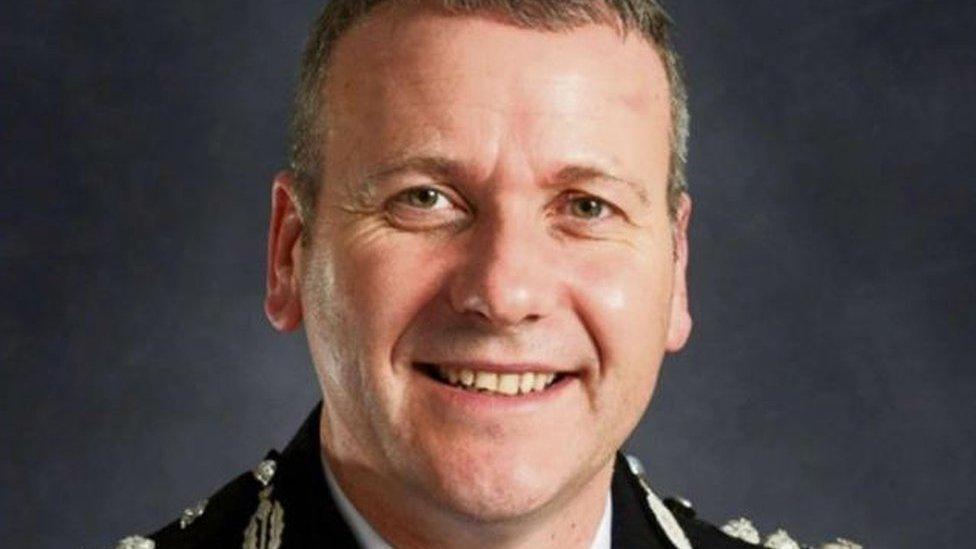London Fire Brigade 'slow and wasteful', according to inspectors
- Published
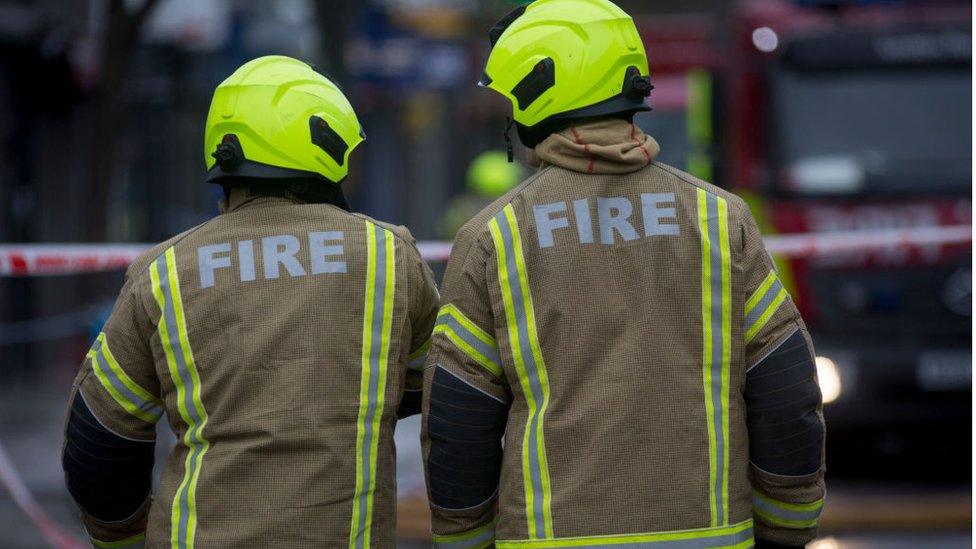
Inspectors found some London firefighters had not received essential training in years
The London Fire Brigade (LFB) has been "wasteful" and "slow to implement changes" needed after the Grenfell Tower fire, a watchdog has said.
HM Inspectorate of Constabulary and Fire and Rescue Services (HMICFRS) found firefighters missed training and attended too many false alarms.
The LFB saw the report six weeks ago and commissioner Dany Cotton stood down earlier than had been planned.
London Assembly members are set to vote on the next commissioner later today.
The Fire, Resilience and Emergency Planning Committee will vote on holding a confirmation hearing for Andy Roe to become the new commissioner.
Reacting to the report Mr Roe, who was announced by Sadiq Khan as Ms Cotton's successor, said he recognised aspects of the brigade which were not "good enough".
He added: "Training our staff is a priority and we are heavily investing to make sure our firefighters have the right skills to carry out their roles effectively.
"We are also planning a new high tech training centre in Croydon, which will include a new Real Fire Training Venue."
'Wasteful projects'
Of 15 fire services to be inspected, London, Essex and Gloucestershire were the three to be rated as requiring improvement.
Matt Parr, HM Inspector of Fire and Rescue Services, said of the LFB: "Many of its projects are wasteful, projects get started and stalled. The organisation as a whole is slow to learn.
"We are absolutely not criticising every firefighter in London - there are lots of people who are very dedicated.
"But what it doesn't leave you with is the impression that the organisation is well-run and where value for money is top of their agenda."
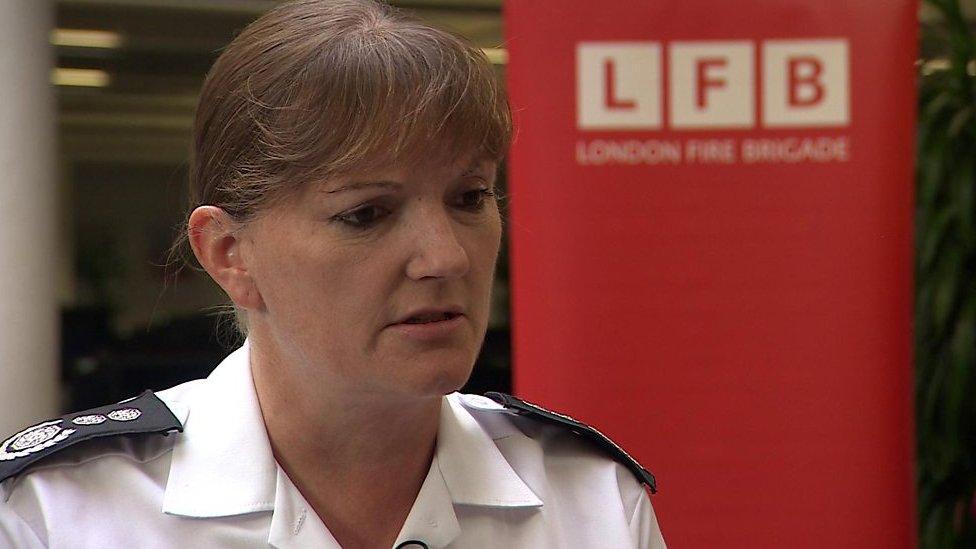
Dany Cotton will stand down as London's fire chief at the end of this month
The report said LFB had "clearly learned lessons from the Grenfell Tower incident".
However, it "has been slow to implement the changes needed, which is typical of the brigade's approach to organisational change", it added.
The report found some fire engine drivers had not received refresher training for up to 20 years, despite national guidance recommending this took place every five years.
There has been no systematic training programme for firefighters tasked with responding to terror attacks in the capital.
Many frontline officers did not have suitable personal protective equipment and "lacked the confidence" to respond, the report found.
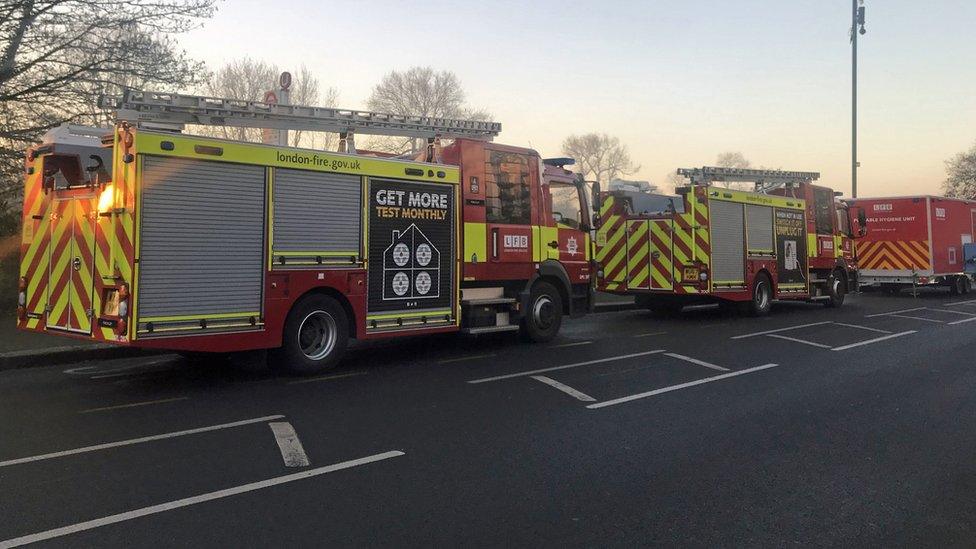
Inspectors said London fire crews attended too many unnecessary false alarms
LFB response times - some six minutes and 39 seconds on average as of the year 2017-18 - were "excellent", but the report said about 48% of its call-outs were to false alarms and not enough was being done to reduce unnecessary call-outs.
In another finding, relevant to the Grenfell disaster, inspectors found LFB was the only service in the country to not follow national operational guidelines.
Mr Parr said: "I don't think there's any justification for having a 'we do it our way' approach in London at all."
Andy Roe, who will replace Ms Cotton as London Fire Commissioner from January, said: "I recognise that what's been highlighted in the report isn't good enough and as the new commissioner I am committed to making the necessary improvements when I take on the position in January.
"We are already delivering some of the key improvements they have highlighted and doing everything we can to provide the best possible service to the people of London and keep them safe."
What did inspectors say elsewhere?
HMICFRS carried out a root and branch examination across a third of the country's 45 fire services.
Six of the 15 fire services were deemed good in effectiveness and efficiency of their services, as well as how they treated people.
The report found Essex Fire Brigade required improvement in preventing fires and other risks and promoting diversity.
Essex's Chief Fire Officer and chief executive, Jo Turton said: "There are no surprises in these findings; the feedback echoes what we told the inspectorate, and reassures us that we are self-aware and that our focus is in the right areas."
Gloucestershire Fire's report said it was "one of the worst" services and highlighted issues leading up to the resignation of former chief Stewart Edgar.
The report mentioned "distressing examples of previous bullying and harassment by senior leaders", which included staff being "humiliated" in front of peers.
Those managers, the report added, threatened "demotion for temporary promoted managers if they didn't carry out certain leaders' wishes".
But it also highlighted positives, including that the service had "by quite a margin, the biggest proportion of female firefighters in England", though attempts to recruit more BAME firefighters had fallen much shorter.
The watchdog also carried out inspections of 12 other fire and rescue services. It found:
Concerns over some aspects of Buckinghamshire Fire and Rescue Service
Cleveland Fire Brigade was performing to a good standard
County Durham and Darlington Fire and Rescue Service was performing to a good standard
Cumbria Fire and Rescue Service was performing to a good standard
Derbyshire Fire and Rescue Service rated as good by inspectors
Devon and Somerset Fire and Rescue Service needed to make improvements
A mixed picture for East Sussex Fire and Rescue Service
North Yorkshire Fire and Rescue Service needed to make improvements
Staffordshire Fire and Rescue Service was performing well
Suffolk Fire and Rescue Service was rated good
South Yorkshire Fire and Rescue Service was rated good
West Yorkshire Fire and Rescue Service was performing to a good standard
- Published6 December 2019
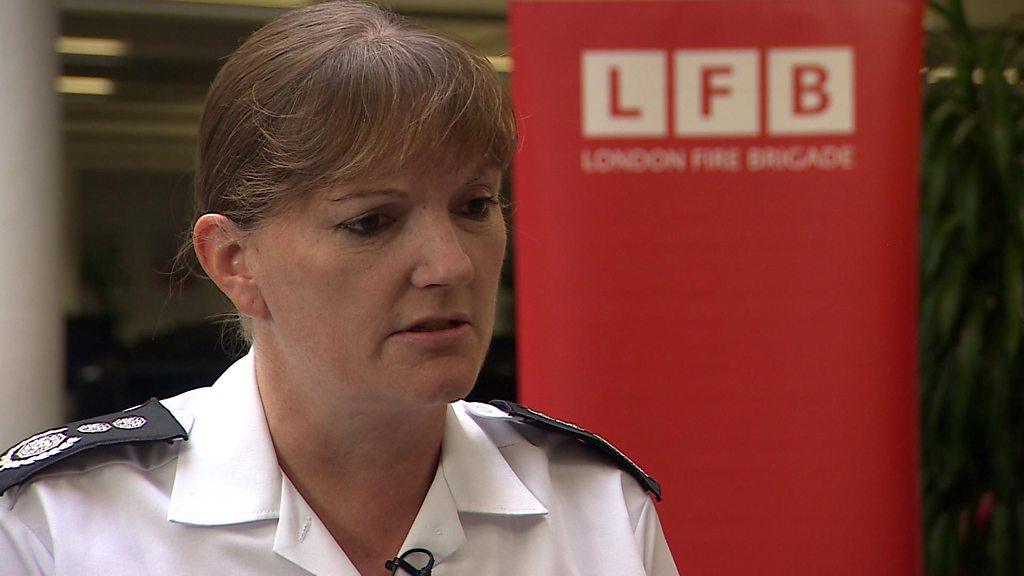
- Published2 July 2018
